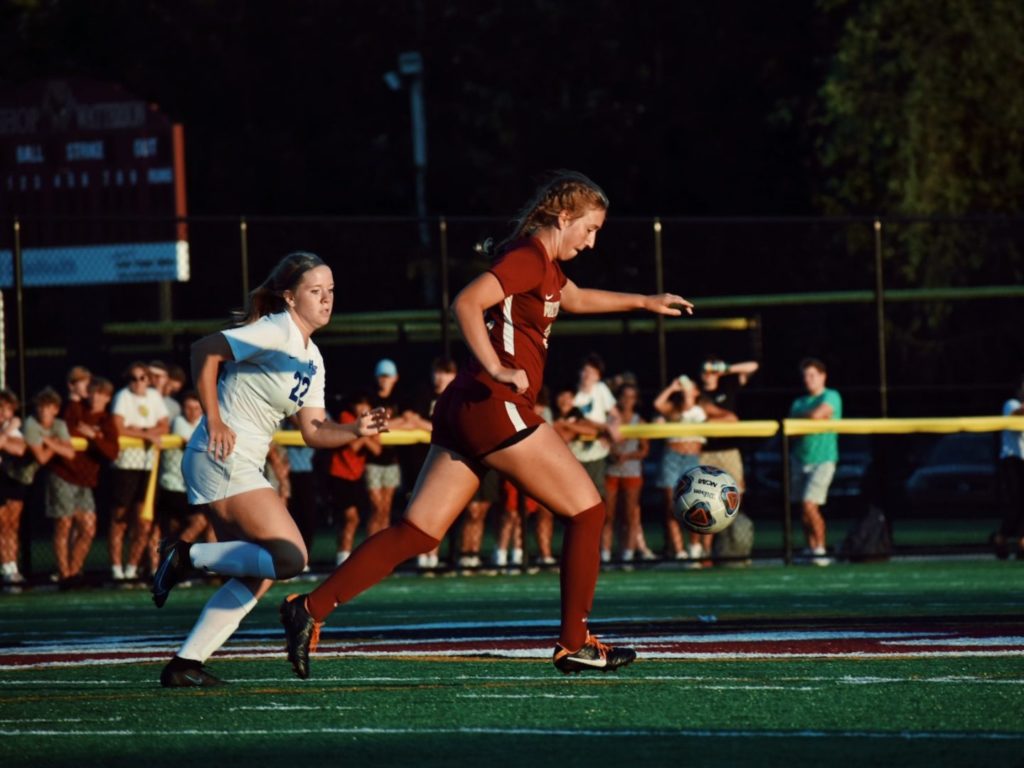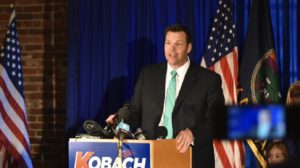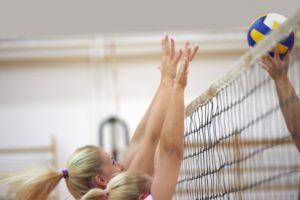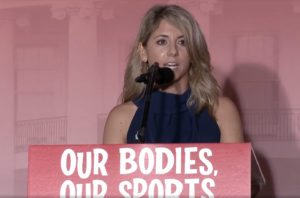This city council voted for equal opportunity, fair play in women’s sports, bucking a vocal audience
A suburban Kansas City council voted 7-1 Monday to support legislation banning biological males from competing in women’s sports.
Many residents at the Shawnee, Kansas town council meeting…

A suburban Kansas City council voted 7-1 Monday to support legislation banning biological males from competing in women’s sports.
Many residents at the Shawnee, Kansas town council meeting reportedly opposed the nonbinding “Fairness in Women’s Sports” resolution, claiming it was an attack on transgender youth and a sign of small-mindedness.
Despite the backlash, councilmembers demonstrated near-unanimous support for the resolution.
Councilmember Jacklynn Walters, who voted in favor of the resolution, told The Lion she and her constituents view it as “common sense legislation.” Councilmembers Eric Jenkins and Angela Stiens noted that the natural male physiology creates an unfair athletic advantage over biological women.
Thus, the resolution’s text states:
“The City supports a bill to protect the fairness of women’s sports; we believe that all should have equal opportunities in sports but allowing biological males to compete in women’s only divisions is robbing girls of their opportunities at all levels.”
While Shawnee’s resolution is not a city ordinance, it serves as the city’s official stance, with the intention of influencing future legislation at the state level.
Transgender athletes are a hot-button topic in Kansas, with both main candidates in the upcoming gubernatorial election taking strong stances on the issue.
Incumbent Gov. Laura Kelly previously vetoed two bills that would have restricted transgender athletes from participating in women’s sports.
Her opponent, Kansas Attorney General Derek Schmidt, argues transgender athletes could undermine Title IX, describing the situation as “fundamentally unfair to female athletes. … People who are biologically male should not be allowed to compete in sports that are reserved for female athletes.”
Title IX, part of the Education Amendments of 1972, is credited with the astronomical increase of women in both education and sports. Participation in women’s high school sports increased tenfold between 1972 and 2012, while the number of female collegiate athletes grew sixfold.
Walters reiterated that Shawnee’s “Fairness in Women’s Sports” resolution is intended to support Title IX and to accomplish just that: fairness.
“I always like to remind people that this is not ‘hate legislation’,” Walters said. “At the heart of it, it is truly [about] recognizing fairness for girls in girls’ sports. The wording is modeled after Title IX to support that. That, for me, is the core issue at the end of the day.”
Supporters of women’s sports contend the issue is not about denying gender identity, but affirming a physical reality. They argue that rules reflecting that reality support the dreams of all girls and women who aspire to be athletes.
Walters says she hopes the Kansas Legislature and next governor will approve legislation to ensure that “the girls in Kansas have a level playing field.”



